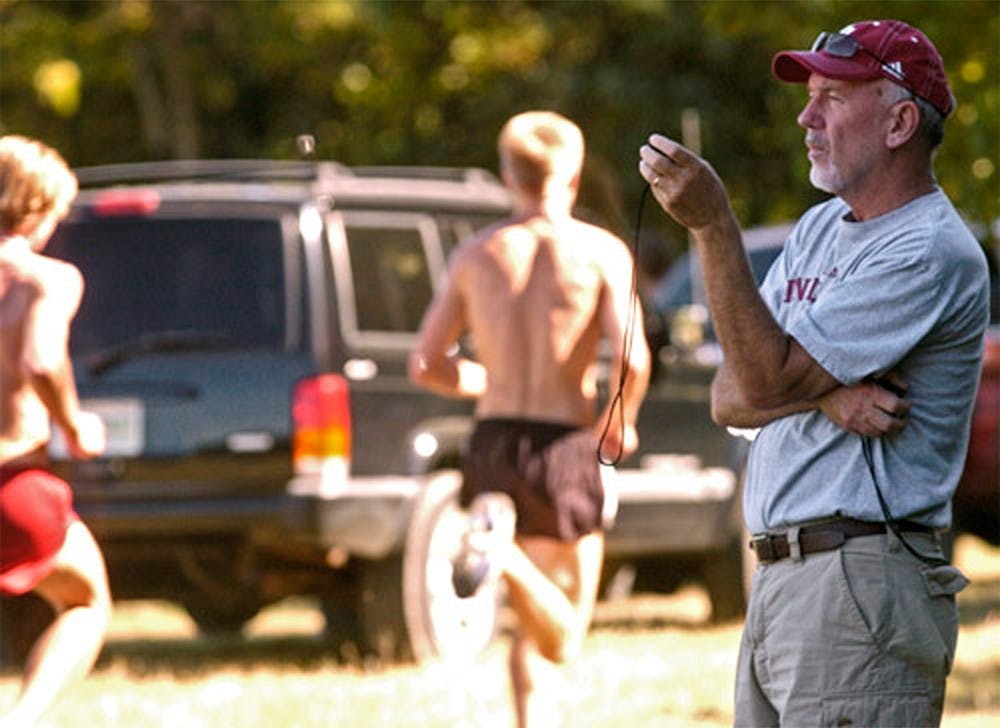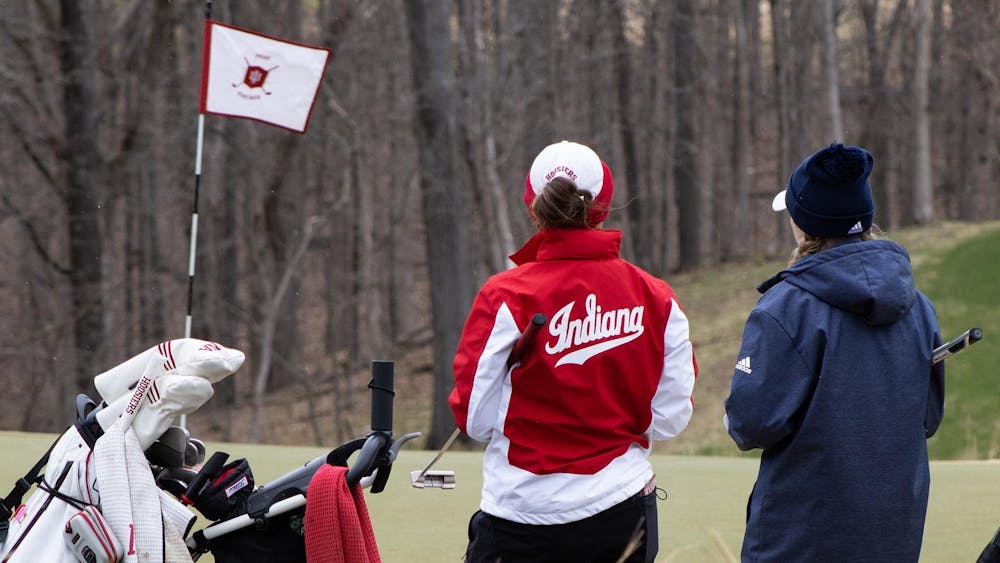The team left for winter break knowing the work they needed to do at home.
They had just heard their coach, Ron Helmer, who they knew had been sick, reveal to them his time had come to an end. The team panicked.
But Helmer was going to be fine. He wasn’t saying his time as their coach was over, but only his time without a functioning kidney. He was getting a transplant from his daughter.
“They’re looking at me, and I said ‘No, no. I’m not going to die,’” Helmer said. “It was, ‘I’m going to get a transplant.’”
In July 2013, Helmer was diagnosed with multiple myeloma and light chain deposition disease. Doctors told him it wasn’t able to be cured, but was treatable.
IU’s coach had to make adjustments. He had to have a stem cell transplant shortly after his diagnosis. He went through chemotherapy.
His athletes would have to help him carry his supplies off the bus whenever they had a road meet, and he had to undergo dialysis. It all began to wear on him.
“You get really sick and tired of being sick and tired,” Helmer said. “When you have all those things going on, you’re always just not quite at full speed, even on a good day.”
The doctors told Helmer his cancer would need to be in remission for an extended period of time.
Then he would be eligible for a kidney transplant, and life would become more normal.
He described the transplant as the tiny speck of light at the end of a dark tunnel.
In December 2015, Helmer revealed the news in a team meeting with his athletes.
Helmer explained to his team his daughter was going to be the donor and the transplant would happen during winter break.
The stem cell procedure was for the multiple myeloma, and this kidney transplant was to treat the light chain deposition disease.
“He said he had those two weeks to recover and he would hopefully be back for training and we’d have that last week together until he had the transplant,” sophomore Kendell Wiles said. “We were really excited for him, but also it’s a scary process so we were just hoping for the best.”
Helmer underwent his kidney transplant surgery Dec. 18, 2015. Through the process of his surgery and recovery, the athletes were kept in the loop about their coach’s status via email and group messages.
Everyone on the team signed a card and had it sent to the hospital for Helmer.
Many athletes went home and told their parents about the procedure, and the parents sent their well wishes too.
Helmer said the communication he got from everyone saying how much they cared was important to him.
The transplant made Helmer’s life better, he said.
He explained while dialysis helps keep many people alive, it pales in comparison to having a functioning kidney.
Helmer said he feels better than he had felt for four or five years, especially for the last few weeks.
His appetite returned and he’s able to enjoy eating again.
His body was, once again, working the way it was supposed to.
Helmer said during this difficult period, something that motivated him was returning to living a more normal life.
He said he looked forward to getting back to coaching and felt he still had the ability to do it well.
He added something he feels is important for dealing with the later stages of life is finding something where he can be productive and have things to look forward to.
However, Helmer wasn’t advised to do what he did following the procedure.
He was at the last practice before winter break, and he was at the first practice after winter break.
The last practice before the transplant, and the first practice after the transplant.
This was a much quicker return to work than the doctors advised.
“I tried very hard to live my life as normally as possible, coach as normally as possible and work as normally as possible,” Helmer said. “That was a world that kept me excited and positive. Maybe because I was active, or because it reminded me I was still able to be relevant or make a contribution.”
But his team wasn’t expecting him to be back so quickly after his procedure. Wiles said she was surprised when she saw him back so soon and it was as if nothing had happened.
She said the team drew inspiration from their coach’s fighting spirit all season, especially given how positive he was able to be during this period.
“When I first got sick, I had a coaching friend, who was much sicker than I was, call me and try to cheer me up,” Helmer said. “He was telling me ‘You’ve got to deal with this. You’ve got to handle this because you need to be an inspiration for other people who have similar issues to deal with.’”
Helmer said the last thing he wanted to be was an inspiration. He just wanted to be well.
This season may have an external factor driving the team few outside the program knew about.
The mental toughness and strength of their coach have been two of many things willing this team to give their very best every week.
Helmer said there’s no choice but to be strong.
“Sometimes in life we have to go through difficult things to realize that, unfortunately,” he said.






